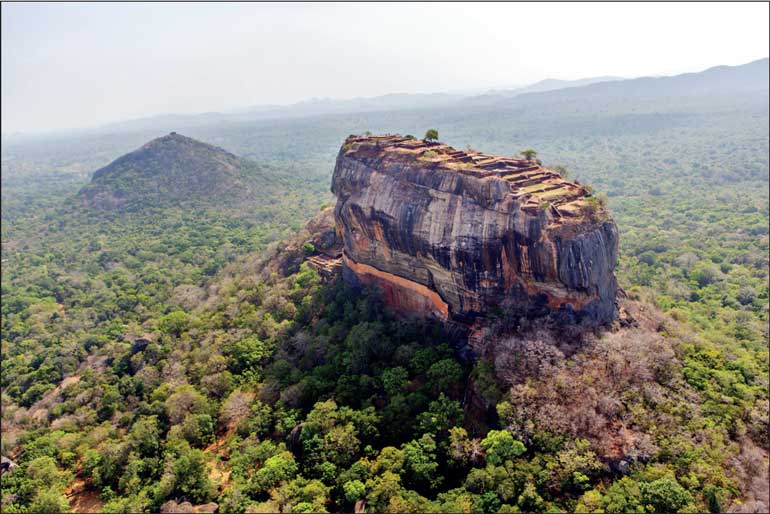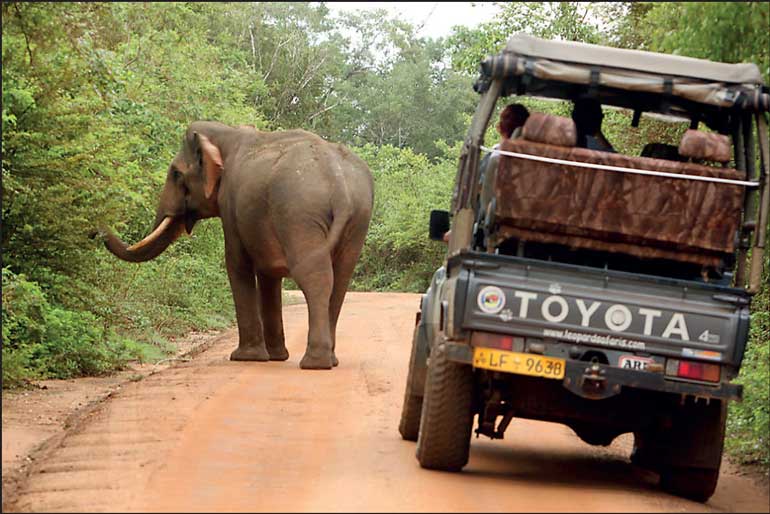Saturday Feb 28, 2026
Saturday Feb 28, 2026
Wednesday, 7 July 2021 00:00 - - {{hitsCtrl.values.hits}}

The COVID-19 global pandemic may have ravaged the global travel and tourism industry, but it has also provided a one-of-a-kind opportunity to press the reset button for the sector. Capitalising on this opportunity, Sri Lanka Tourism is charting a new environmentally-friendly way forward for the sector to navigate the future in a sustainable manner.
Sustainable tourism is important to protect natural, cultural, and environmental resources which are critical for the wellbeing of Sri Lanka’s tourism industry. If these valuable resources are not protected, Sri Lanka could see dwindling tourist number in the future.
Particularly post COVID-19, sustainable tourism is more likely to be demanded by travellers and to meet this future demand, the National Sustainable Tourism Certification (NSTC) has been initiated.
“Sustainable tourism is no longer an option, in order to remain competitive in the global arena it is imperative that we adapt to the demands made by travellers. Sri Lanka is a small island vulnerable to climate change with its tourism product heavily dependent on natural resources, hence it is essential to develop the industry in a sustainable manner. To support this philosophy we became members of the Global Sustainable Tourism Council (GSTC) to further strengthen the islands position as a sustainable destination,” said Sri Lanka Tourism Chairperson Kimarli Fernando.
Plans are being drawn up to develop Sigiriya as the first Sustainable Destination. The Draft in relation to this is ready and to be shared with the Central Cultural Fund (CCF). Further, the Yala Palatupana Tourism Zone is scheduled to be upgraded as a Protected Conservancy Area, given the high level of biodiversity. Further guidelines are being prepared to mandate new tourism projects to have sustainability requirements including renewable energy, recycling, and zero single use plastic. Boutique hotels currently in operation will need to be given a timeframe to be compliant to sustainability goals in the future.
Sri Lanka Tourism has initiated action on targets of UN Sustainable Development Goals 2030. Meanwhile MEPA (Marine Environment Protection Authority) is partnering with Sri Lanka Tourism for marine environment protection to ensure a healthy coastal and ocean environment for future generations which has currently been put on hold due to the X-Press Pearl catastrophe. This a critical need as tourism accounted for at least 5% of the world’s greenhouse gas emissions in 2019, according to the UN World Tourism Organization.
As Millennial and Gen Z travellers become more conscious of their travel footprint, they are seeking greener destinations. The TUI Group, the largest leisure, travel and tourism company in the world with its own travel agencies, hotels, airlines, retail shops and cruise ships, reported an 84% increase in the number of its clients choosing “greener and fairer” holiday packages between 2015 and 2020.
Challenges such as climate change, loss of biodiversity and pollution threaten the future of travel, Sri Lanka Tourism has been strategising on how these threats to the global sector can be mitigated locally. The authorities recognise that promoting sustainable tourism is crucial to increase the competitiveness of the destination and to positively build brand Sri Lanka.
